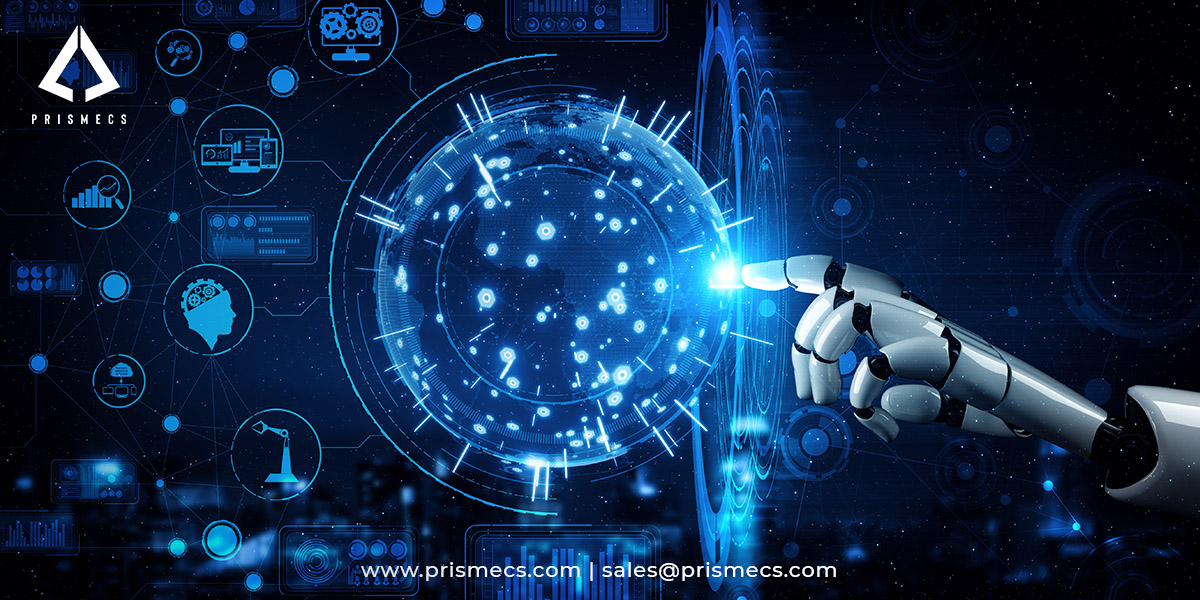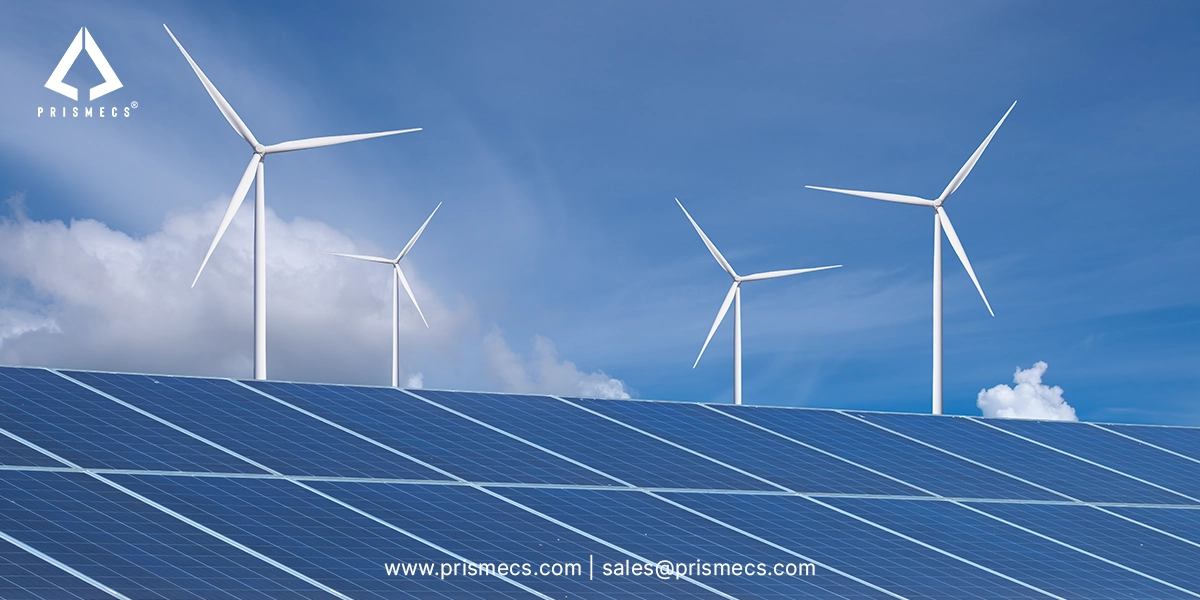
In the era of rapid technological advancements, artificial intelligence (AI) has emerged as a transformative force across various sectors. One area where AI is making significant strides is in the efficient management of power plant operations. With the increasing demand for clean and sustainable energy, power plants face pressure. They must optimize their processes, reduce costs, and minimize environmental impact. In this blog, we will explore how AI revolutionizes power plant operations. It enhances efficiency and paves the way for a productive future.
Role of AI in Power Plant Operations
The incorporation of artificial intelligence power in power plant operations is entering the power sector, supported by technology and consulting services to guide implementation and integration. Its potential impact could be crucial. As time continues, the power sector transfers knowledge to AI software companies. This transfer helps overcome challenges associated with this integration. The power sector in developed countries has recently started adopting artificial intelligence and the various technologies associated with it. These advancements facilitate communication between smart grids, smart meters, and Internet of Things (IoT) devices. By leveraging these technologies, we can enhance power management of plant operations, improve efficiency, and increase transparency. Furthermore, the integration of AI increases the utilization of renewable energy sources.
These include solar energy and wind turbines. This integration promotes a more sustainable energy future. AI is indeed playing a key role in efficiently managing power plant operations. Here are some ways in which AI is being utilized:
Emission Control and Efficiency
AI can help power plants reduce their environmental impact by optimizing fuel combustion processes and emission control systems. AI algorithms analyze AI data from sensors and control systems. They optimize fuel-to-air ratios, often coordinated with O&M services for continuous monitoring and emission compliance. They reduce greenhouse gas emissions such as carbon dioxide (CO2). They improve overall energy efficiency. This benefits the environment and helps nuclear power plants meet regulatory requirements.
It also helps facilities that rely on fossil fuels meet regulatory requirements. Generative AI models trained by a research institute provide innovative solutions. They reduce emissions across a wide range of electrical systems.
Predictive Maintenance
One of the critical challenges in industrial power plant operation is maintaining equipment. This helps avoid unexpected breakdowns and costly repairs. Traditional approaches often rely on fixed schedules. AI-powered predictive maintenance transforms this approach. It analyzes large-scale real-time AI data. For example, operators train AI models with data from turbines, pumps, and the electric generator. This training enables operators to identify issues promptly and effectively. In data centers, predictive maintenance powered by AI also lowers electricity consumption and operational costs. This practice is shaping the energy transition from reactive maintenance to smarter, proactive planning.
Energy Forecasting
AI can analyze historical energy consumption patterns, weather data, economic indicators, and other relevant variables to forecast energy demand. Accurate forecasting enables operators to predict both short-term and long-term amounts of electricity demand accurately. In regions like the European Union, forecasting plays a crucial role in supporting the integration of solar energy. It also integrates wind turbines into the electrical grid. Forecasting further integrates electric vehicles into the electrical grid. By doing so, operators reduce reliance on fossil fuels, ensuring a stable energy system while promoting energy savings across industrial and commercial applications.
Optimal Load Management
Power plants face the challenge of meeting fluctuating energy demands while ensuring a stable power supply. AI helps in optimal load management by analyzing electricity consumption, weather patterns, and peak loads. AI-powered systems in the control room distribute loads across electrical systems. They balance demand from data centers, nuclear power plants, and factories. This technology ensures that the grid operates efficiently, reduces carbon dioxide CO2 emissions, and supports the ongoing industrial revolution in clean energy.
Energy Optimization
In an era where sustainability is a top priority, AI is helping optimize energy use and minimize waste. AI models monitor electricity produced by electric generators. They adjust turbine operation for efficiency. They also control combustion to improve performance. They regulate heat recovery processes for optimization. AI systems also play a role in reducing reliance on fossil fuels by integrating renewable energy into electrical systems.
The result delivers significant energy savings. It ensures improved energy transition. It reduces pressure on nuclear power plants and other conventional resources.
Grid Management
The modern electrical grid is complex and requires real-time monitoring. AI-powered grid management enhances performance and stability by analyzing vast AI datasets. For instance, in the control room, AI predicts faults, optimizes electricity storage, and stabilizes supply during peak demand. By coordinating with electric vehicles, solar energy, and wind turbines, grid operators can ensure smoother energy system performance. This approach reduces dependency on fossil fuels. It enables the European Union and other regions to achieve their energy transition goals.
Safety and Risk Management
AI enhances safety by analyzing data from electrical systems, sensors, and historical records. AI detects anomalies and alerts operators in the control room. It warns about risks such as overheating, equipment failure, or excessive electricity consumption. Furthermore, generative AI tools provide simulations to prepare teams for emergencies. This is particularly useful in nuclear power plants and data centers, where continuous power is critical. The ability to predict and reduce hazards supports large-scale infrastructure. It also accelerates the global shift towards safer, cleaner, and more sustainable power generation.
In a Nutshell
Artificial intelligence is revolutionizing the power plant industry by driving operational efficiency, reducing costs, and promoting sustainable energy practices. AI is transforming power plant operations through predictive maintenance, optimal load management, energy efficiency optimization, and grid management. AI algorithms facilitate energy efficiency optimizations, reducing energy consumption and lowering carbon emissions. Ultimately, AI-powered grid management systems improve grid performance and enhance resilience. They ensure a stable and reliable power supply.
By harnessing the power of AI, we achieve greater energy efficiency. We also minimize environmental impact and pave the way for sustainable energy infrastructure. This approach builds more resilient energy infrastructure.
Ready to Transform Your Power Plant with AI?
By partnering with Prismecs , you gain a trusted ally with proven expertise in applying AI to complex energy challenges. We design our solutions to minimize environmental impact, improve decision-making, and future-proof your operations. Don’t wait to harness the true potential of AI in your power plant. Call us today at +1 (888) 774-7632 or email sales@prismecs.com to get started on powering your future with AI.
Tags: Artificial Intelligence Power Energy Sources Generative AI Greenhouse Gas Electricity Consumption Energy System Energy Efficiency Power Generation Power Grids Artificial Intelligence AI Energy Consumption Grid Operator
recent posts

Power Generation
10 minutes read
How to Maximize Uptime in Power Generation Plants
Discover how Prismecs power plant maintenance helps operators prevent outages, protect revenue, and keep turbines running at peak performance. Learn h...

Renewables
8 minutes read
Opportunities in Renewable Energy Development
Explore Renewable Energy Development strategies focused on grid stability, faster deployment, and resilient power systems with Prismecs. Plan your nex...

Press Release
2 minutes read
Altaaqa Global & Prismecs Form Strategic Cooperation to Accelerate Modular Power Deployment Across USA
Prismecs and Altaaqa Global Announce Strategic Cooperation to Accelerate Modular Power Deployment in the United States Houston, TX & Dubai, UAE – Febr...

Procurement
9 minutes read
Complete Guide to Industrial Procurement Services
Explore Industrial Procurement Services for power and oil & gas projects. Cut delays, secure critical equipment, and build resilient supply chains wit...